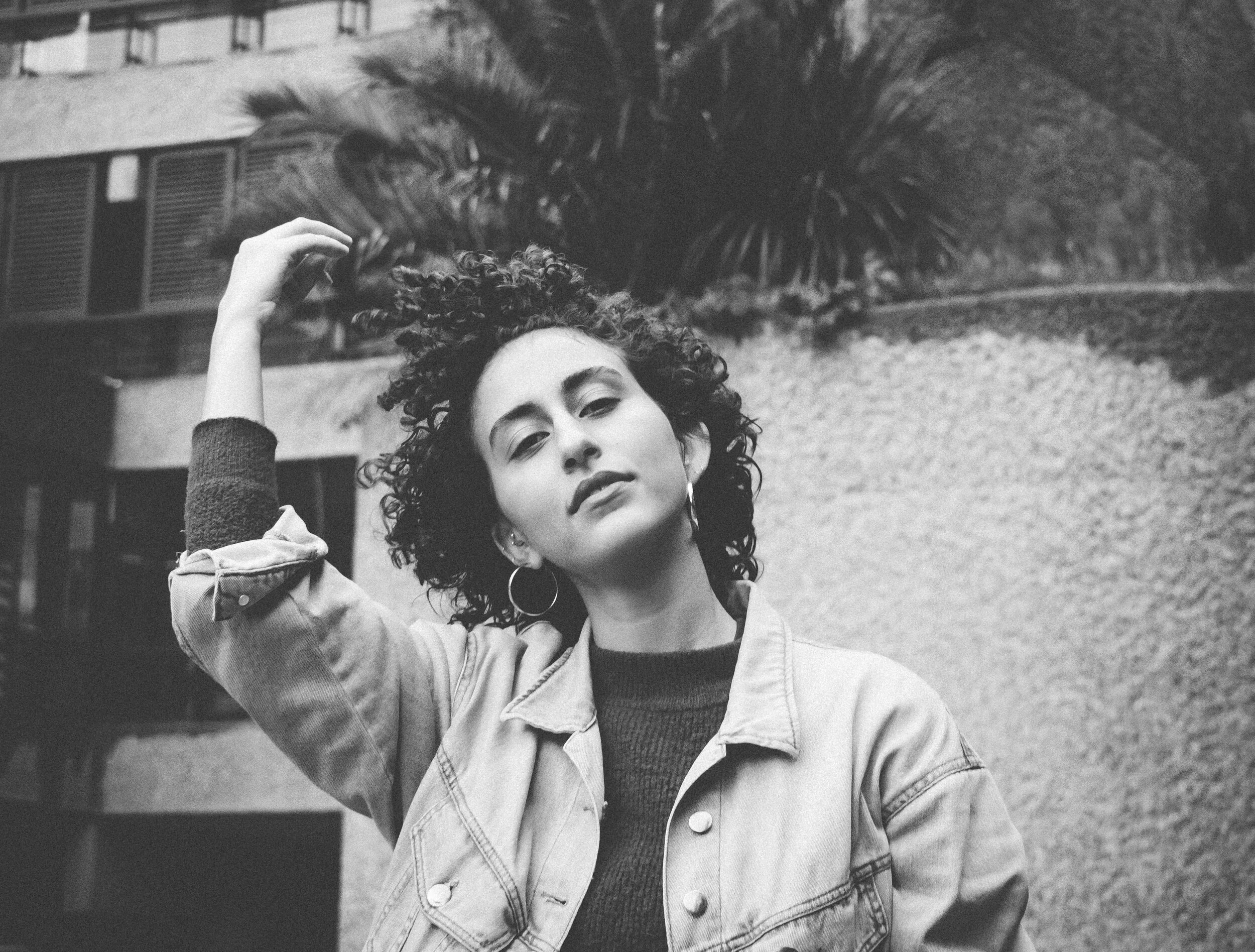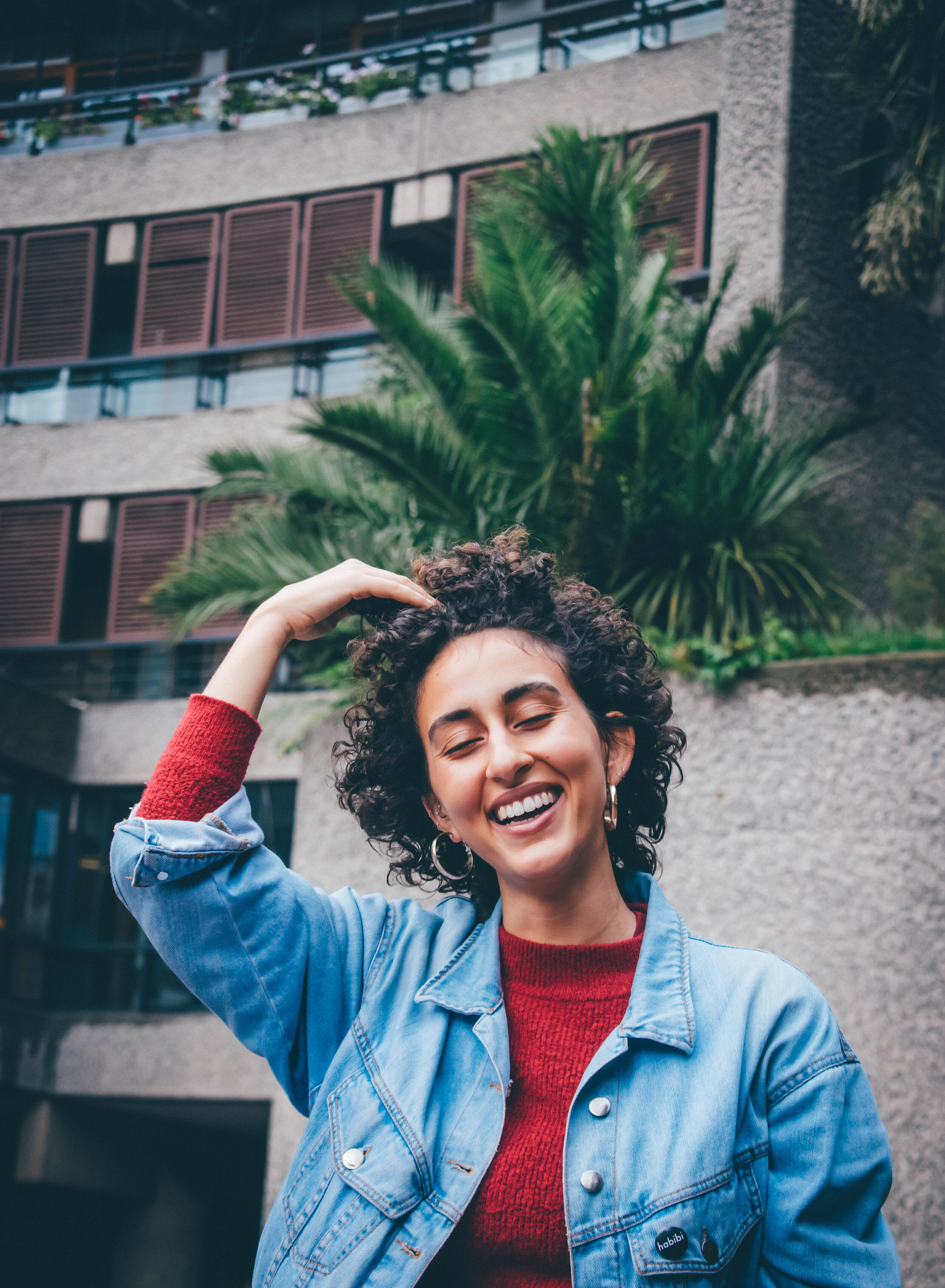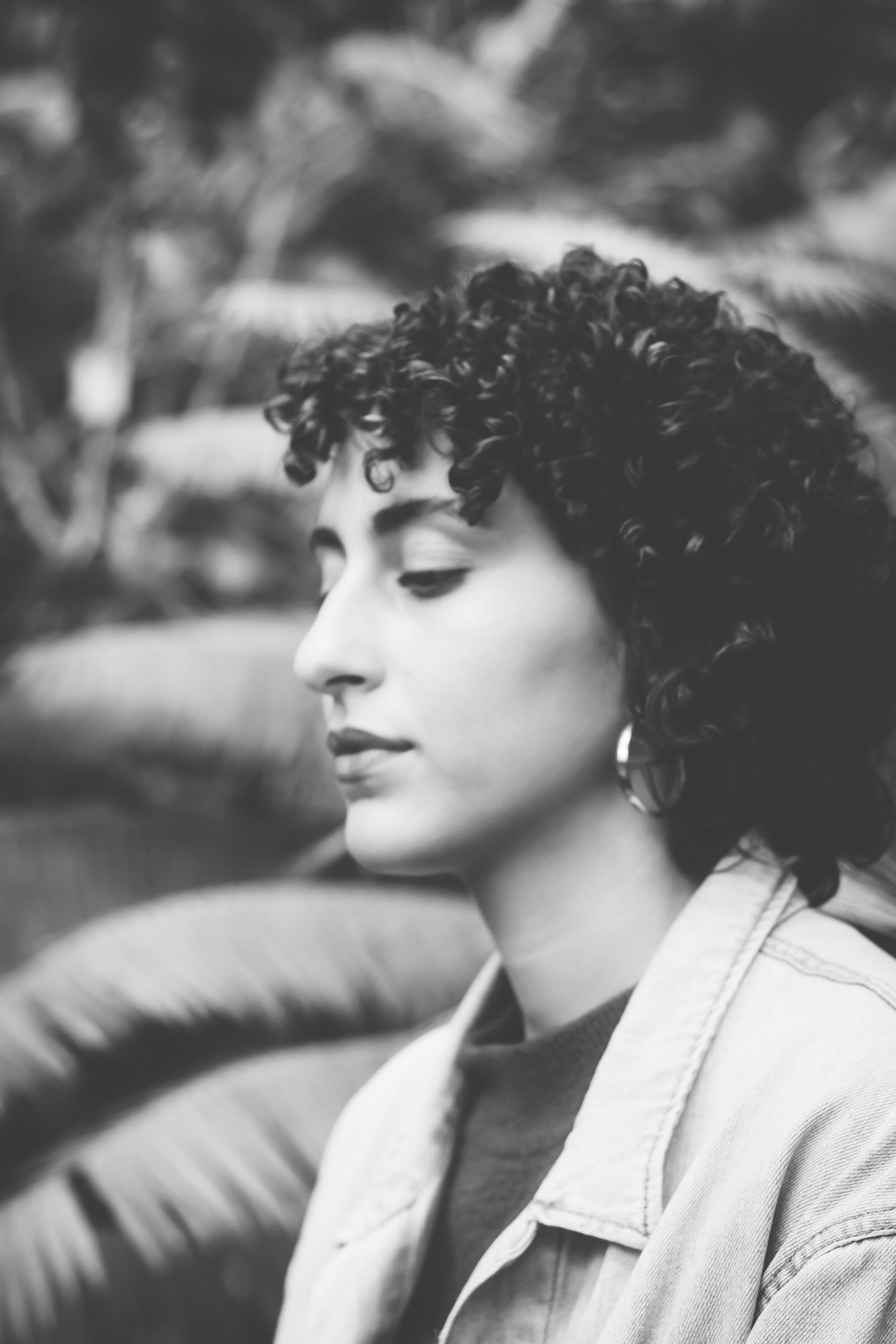Muna Ileiwat
What’s your full name?
Muna Ileiwat.
Where were you born/brought up?
I moved around a bit growing up. I was born in The US, but I feel like I was brought up in The Netherlands. I feel like my most significant years of development were spent there.
What do you do for a living?
I work at music distribution company / record label. I run a record label and collective of my own for women and non-binary musicians of colour called Galang. I’m also a musician.
What’s your ethnicity?
I’m half Palestinian and half Antillean. My mom is from a Caribbean island called Curaçao.
How did your mum and dad meet?
My parents met at university in New York.
How old were you when you became conscious that people saw you differently? What impact did that have on you?
When I was about ten, living in London and attending an American school. I couldn’t always relate to people and their upbringing, plus it wasn’t hot being the only Arab kid amongst all your white American friends post 9/11.
Describe your most memorable moments when you were made aware of being mixed race.
I became more aware of my ethnicity when I was living in The Netherlands. I went to an international school. The school was diverse, so the level of awareness and tolerance in that environment was high. There was a collective feeling of being ‘other’ because a majority of people in that community couldn’t simply relate to being from one place. That was a period in my life that when asked where I was from I would talk about my ethnicity. Before that I felt strongly about identifying as an American. I would say I was from New Jersey. I realise it was because I wanted to fit into the white space and culture of the American school I had attended in London.
Do you feel your parents prepared you for life as a mixed race person?
No but then again they had never experienced it themselves. They had me and my older brother when they were young so I imagine they were still learning how to navigate adulthood, let alone parenthood.
What ignorant comments have you heard about being mixed-race that really rile you?
The fetishzing around mixed-race people. It’s objectifying and dehumanizing.
What do you wish people who aren’t mixed-race understood?
I wish more people understood the importance of diversity and representation. Constantly having to explain yourself as a person of colour is exhausting. I’m tired of overextending myself in certain social situations to make it more comfortable and easier for white people to digest.
Do you think mixed race people/families are well represented in the media?
It’s definitely gotten better over time but I still think people of colour are massively underrepresented in media outside of being stereotyped. As I’ve gotten older, my level of tolerance for this is low. I’m not interested in watching films and shows that don’t represent a diversity of appearances. I think it’s simply easier nowadays to choose what it is we want to engage with from this angle. I recently watched the series ‘Ramy’ which I found extremely entertaining and heartwarming. It hit home hard in many ways.
Back in the late 19th century/early 20th century being mixed race held a stigma, as it was clear proof of interracial relations which was seen as an affront to society’s morals. Do you think it’s easier nowadays to be mixed race or is it more that racism has become subtler?
I think the language surrounding racism is more subtle nowadays. I’ve been fortunate to spend a majority of my life in and amongst multicultural communities and cities so I think one’s experience of racism is deeply affected by where you live and the communities you’re surrounded by. However, my most severe experiences of racism occurred at university in London, a perfect example of institutional racism. The experience proved just how normalised and established racism was within the organisation, regardless of whether that institution was based in a multicultural city like London.
Is being mixed race a burden or a blessing for you?
A blessing without a doubt. The older I become, the more comfortable I am with disclosing and discussing aspects of my identity and how it relates to my lived experience. It has given me a wider understanding of people and the world around me.
Have you felt a struggle with your identity? If so, how did you deal with it and if you are now at peace with who you are, how did you come to a place of self-acceptance?
I’ve struggled with my identity on many levels - within my own family dynamics, in social situations, how it affects my sense of belonging and what it could mean in the future if I have children (the list is endless). Learning how to navigate the divide between my parents’ cultures and upbringing was confusing as a kid. Things were being instilled in me through one parent that didn’t align with the other. As I’ve gotten older I’ve learnt to accept identity as a fluid construct. Embracing my identity has shaped so much of how I perceive the world around me.
What advice would you give yourself?
Rock the curls. Believe it or not, natural hair will become trendy.





